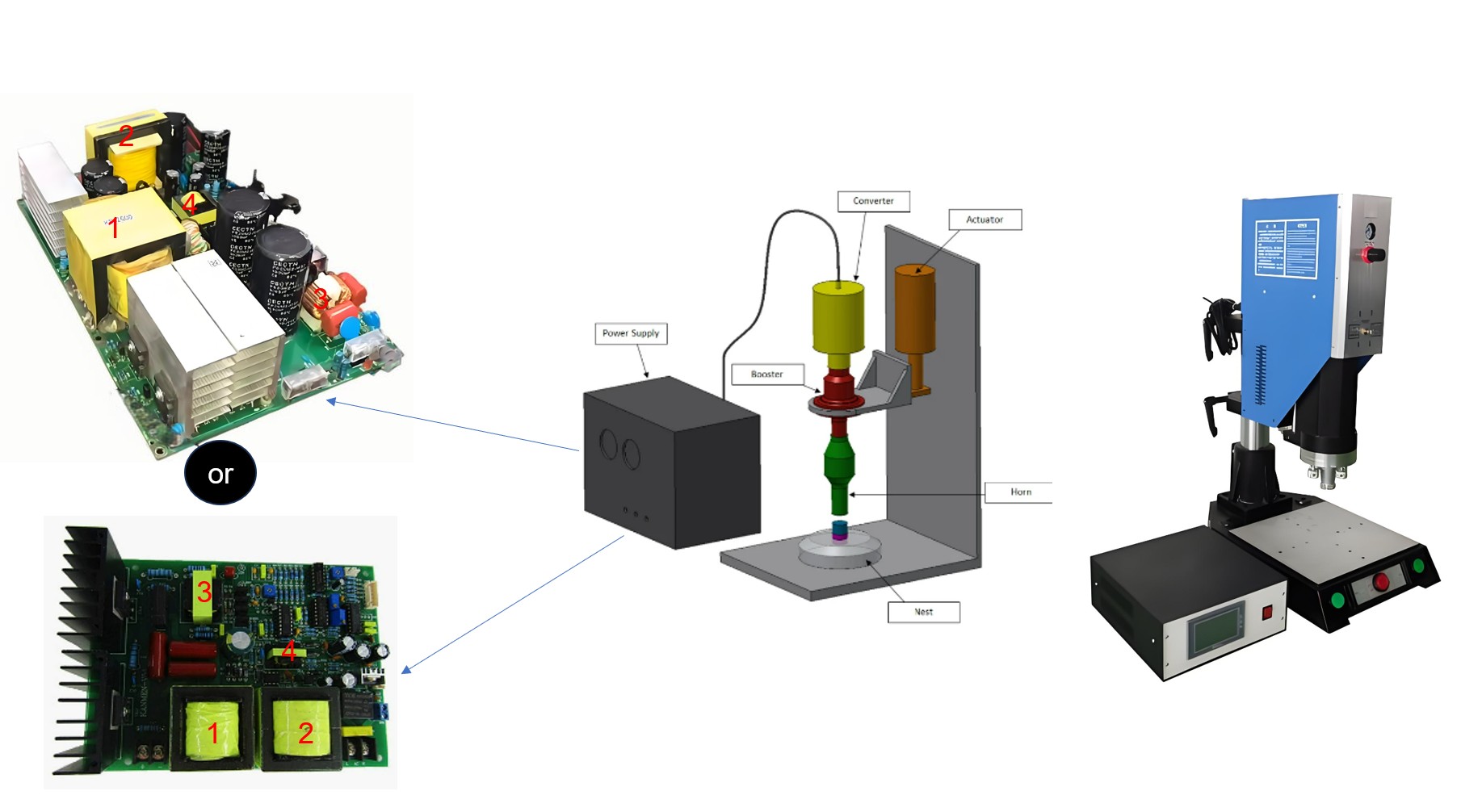In an ultrasonic welding machine, magnetic components, such as the inductor, transformer and choke, play a significant role in the overall performance and welding quality. Here’s how these magnetic components affect the welding process:
Energy Conversion Efficiency: The transducer, which typically contains piezoelectric materials, converts electrical energy into mechanical vibrations. The efficiency of this conversion is crucial for the welding process. High-quality magnetic components ensure that a maximum amount of electrical energy is converted into mechanical energy, leading to effective and consistent welding.
Frequency Stability: The magnetic components must maintain a stable resonant frequency to ensure consistent welding quality. Any instability in the magnetic properties can lead to fluctuations in the frequency, causing inconsistent energy delivery to the weld interface. This can result in weak or uneven welds.
Heat Generation: The mechanical vibrations generated by the transducer create friction at the welding interface, which generates heat. The efficiency and stability of the magnetic components directly affect the amount and consistency of heat generated. Proper heat generation is essential for achieving strong and reliable welds.
Mechanical Precision: The precision of the magnetic components in generating and transmitting vibrations is critical. Any misalignment or inconsistency in the magnetic field can lead to uneven energy distribution, resulting in poor weld quality. High-quality magnetic components ensure precise and consistent energy delivery to the welding interface.
Temperature Sensitivity: Magnetic components can be sensitive to temperature changes. Variations in temperature can affect the magnetic properties and, consequently, the performance of the transducer. Ensuring that the magnetic components are designed to operate within a specific temperature range is crucial for maintaining consistent welding quality.
Material Compatibility: The design and material of the magnetic components must be compatible with the specific requirements of the welding application. Different materials and geometries may require different magnetic properties to achieve optimal welding quality.
In summary, magnetic components in an ultrasonic welding machine are critical for efficient energy conversion, stable frequency operation, precise mechanical vibrations, and consistent heat generation. Proper selection, maintenance, and tuning of these components are essential for achieving high-quality ultrasonic welds. Any issues with the magnetic components can lead to inconsistent energy delivery, resulting in poor weld quality.

BST, a manufacturer for sensors and magnetic components, welcome to contact us for more details.